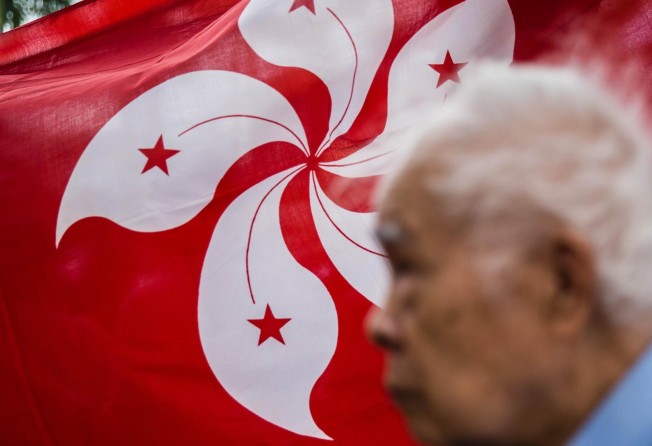Hong Kong must break the political impasse or face untold years of anger and frustration
Bernard Chan says a review of the meagre options that await Hong Kong should political reform be vetoed by lawmakers is sobering, and should spur us on to break the impasse now

Unless some sort of miracle happens, the government's proposal for universal suffrage will fail to get through the Legislative Council after it is introduced next week. We will be back at square one with the existing election system - a system that most people agree does not work. Yet the community is likely to be calm about this. Only if the proposal gets passed do officials expect major protests.
This sounds like a contradiction, but maybe it is not that puzzling. The August 31, 2014 decision of the National People's Congress Standing Committee made it clear that Hong Kong political reform must conform to certain conditions. The pro-democrats reject at least some of those conditions. Public opinion is also quite divided. It is a strange situation where no progress is seen as better than the alternative.
Let me briefly repeat my own position. I think the proposed reform package would be good for Hong Kong. I believe that, even with a restricted nomination procedure, competition for the popular vote would help change the culture of our political system. Candidates would listen more to the public and less to interest groups, and that would be good for governance. I cannot prove this - it is a feeling I have, or maybe it is just common sense. It seems we will not even have the chance to find out.
If so, what happens next?
Although we will be left with the status quo in terms of the election system, the status quo is not an option in terms of government policy. There are numerous signs - not just last year's Occupy movement - of serious stresses in our society. People are getting angry over relatively minor issues like parallel traders, mainland schoolchildren, illegal parking and even individual immigration cases. These small issues are lightning rods for deep frustration over the big issues like housing prices, overcrowding and a growing sense of unfairness.
The administration lacks a popular mandate. In Legco, it faces an opposition that seems to obstruct any measures - regardless of whether anyone thinks they are good or bad. It relies on support from several quite different parts of the community, some of which are narrow interest groups with agendas of their own. Indeed, some of these interest groups are likely to resist some of the reforms needed to address our most urgent problems.
The idea of another two years of this is worrying. The prospect of this continuing under the next administration after 2017 is even worse.
The ideal would be some sort of consensus-building among all or most of our political players and major business and community groups. But that looks extremely unlikely. Even if we ignore fringe groups and focus on the middle ground, we see a serious political divide. Filibustering by pro-democracy lawmakers is just one visible part of this. There is a lot of bitterness.
Maybe our leadership could appeal directly to the people for moral support. But this may also be wishful thinking. As well as a political split, our society is divided into segments such as rural groups, public housing tenants and the middle class. In the current climate, all will put their own perceived interests first.
A third possibility is simply stronger government that can override opposition. Some pro-establishment observers are hoping to see the pro-democrats lose badly in the 2016 Legco election in order to make this possible. An administration in this position would need to use its strength carefully and fairly, or it could just make things worse.
Alternatively, we could have the universal suffrage on offer. It would not totally guarantee good government-legislature relations or consensus across the community. Our problems would not instantly go away. But it could give our system greater legitimacy, encourage candidates to listen to the people, and give the opposition less reason to obstruct and discredit every government initiative. That would be an improvement.
In other words, rejecting the reform package will be a waste of an opportunity.
Bernard Chan is a member of the Executive Council